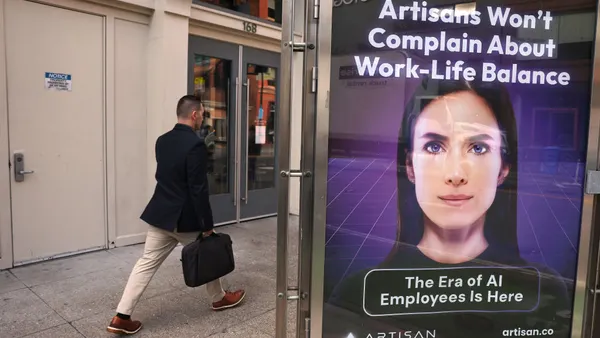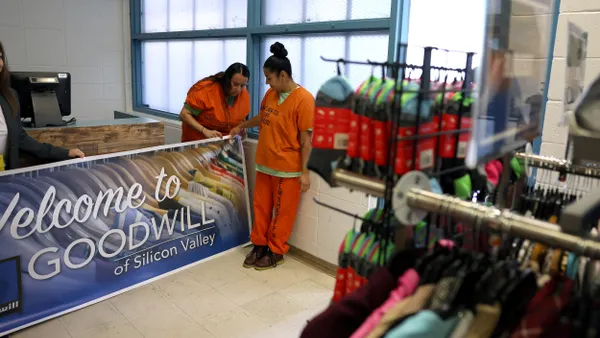Dive Brief:
- Occupations with higher levels of exposure to artificial intelligence technologies between 2011 and 2019 experienced increased employment shares during that time, researchers said in a November article published by the European Central Bank.
- According to the findings, derived from a working paper that examined occupational data in 16 European countries, about 25% of all jobs were highly exposed to AI-enabled automation in the form of tools like language processing, image recognition and algorithm-based recommendations. Researchers found a “positive and significant association” between AI exposure and employment share for some groups, while for others, AI exposure “does not seem to shake things up significantly.”
- Jobs with higher shares of younger and skilled workers showed the highest employment gains, researchers said. The effects of AI exposure on wages were “less clear,” according to the analysis, with evidence suggesting “neutral to slightly negative impacts.”
Dive Insight:
The researchers noted that the AI-enabled technologies deployed between 2011 and 2019 are “more limited in scope” than recently developed generative AI platforms such as ChatGPT. Older AI tech was nonetheless impactful, per the study, particularly for highly-skilled roles. AI exposure increased high-skill occupational employment share by either 3.1% or 6.7% depending on which exposure modeling researchers used.
“However, the jury is still out on whether the same can be expected from new developments in AI-enabled technologies,” researchers said. “When the verdict comes in, it could be win or lose — not only for jobs, but also for equality and prosperity in Europe.”
AI may be one of the most important issues HR departments face in 2024. Industry professionals are already developing and deploying HR use cases for ChatGPT, and at least one executive at the Society for Human Resource Management has called on HR teams to embrace AI rather than shy away from it.
Job candidates, moreover, are increasingly using AI during the hiring process, prompting a different moral question for HR departments entirely.
Worker attitudes toward AI vary in literature. A Pew Research Center survey from April found that more than one-third of Americans said they were not sure what AI-workplace integration would mean for them personally, though approximately 3 in 10 respondents said AI would both help and hurt them in some respects. More than half said they thought workplace AI would have a major impact on the U.S. economy over the next 20 years.
Meanwhile, an American Staffing Association report published in August found that 74% of U.S. adults said they believed AI and automation would take jobs away from humans, and slightly fewer than half said that automation could easily replace their jobs. But a recent Robert Half survey that measured sentiment around generative AI, specifically, found that 4 in 10 workers believed the tech would have a positive effect on their careers.
The findings of the European Central Bank research “do not amount to an acquittal” of AI technologies, the authors wrote. “Most of their impact on employment and wages — and therefore on growth and equality — has yet to be seen.”













